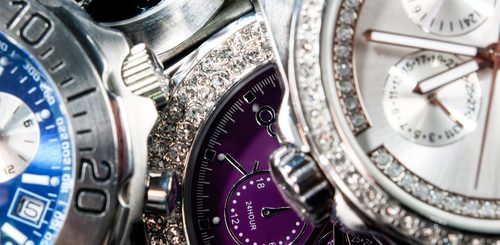Vintage vs. Contemporary Watches

Those who are considering buying a new watch may ask themselves which is better, a contemporary or vintage model? The watch industry is very complex with so many brands, designs and styles that inexperienced shoppers can quickly become overwhelmed. Below are some key things you should know about contemporary or modern watches versus vintage timepieces which were manufactured decades or even centuries ago.
Dependability
Dependability is one of the most important factors to consider when deciding which type of watch you want, and this is not an area where vintage watches excel. The reality is that a watch manufactured 50 to 100 years ago is going to require maintenance eventually, which can be quite expensive as there aren’t many people who have the expertise to do it. Contemporary watches are manufactured using new processes, technologies and materials, and replacing any parts that do become damaged will be much easier and more cost effective.
Collectability
This is an area where vintage watches have a considerable edge. Any watch which was manufactured many years ago probably is no longer being produced, which means that any models which have survived to the present day will be valuable, far more so than contemporary time pieces. This has two important implications for the buyer. First, acquiring such a watch is going to cost more than many contemporary watches, but it also means that the watch may become even more valuable if you and your descendants care for it. Imagine the value of a watch which has been cared for after 400 years has passed. Like artwork it would command a significant sum of money.
Features
This is an area where few vintage watches will be able to compete with modern timepieces. For instance, the movement of a watch that was manufactured in 1950 probably has no protection from shock, nor does it likely have protection against water exposure. Even if it does, many of the vintage models do not provide the same level of protection against water that are seen in modern brands. Most sellers of vintage watches will not only tell you to keep them away from water, but any area that is damp or full of moisture.
Vintage watches also need manual winding, which isn’t a requirement for modern watches. If you’re experienced with vintage watches and can perform the needed work yourself, or you know someone who can, they may be a good purchase, but otherwise, contemporary watches will be easier to maintain. The biggest advantage of vintage watches is their style and the fact that when you own them you own a piece of history. People buy them for the same reason they buy aged wine, classic cars or artwork, because it was produced during an era that has passed and will never be repeated. But for cost, ease of maintenance and technological features, modern watches are a better choice.


